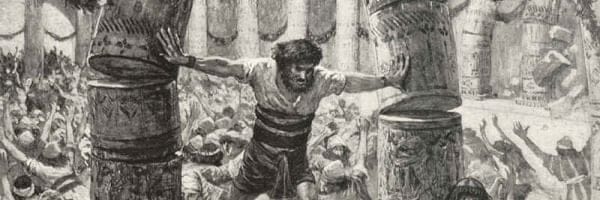A Confession on the Consequences of Private Judgment
Prologue
Many who profess sola scriptura sincerely wish to exalt the Word of God above human tradition. They fear that any living authority might obscure the sufficiency of Scripture or enslave conscience to men.
Yet when one rejects all visible, infallible interpretation, the result is not divine liberty but human autonomy - each person becomes his own rule of faith, his own theologian, his own magisterium.
This confession seeks to unfold that reality: how the absence of an infallible guide inevitably enthrones private judgment as the supreme authority in matters of revelation.
Article I – The First Principle
Those who hold Scripture alone begin with the claim that “the Bible is the only infallible rule of faith and practice.”
But this principle assumes that one already knows, with certainty, what the Bible is, how its words are to be understood, and which texts are genuinely inspired.
When there is no infallible interpreter, the believer must decide these things by his own intellect, using evidence, reasoning, and persuasion.
Thus, even before he opens the sacred page, he has already become the final arbiter of what counts as God’s Word.
Article II – The Canon
Scripture does not contain a divinely inspired table of contents.
No verse identifies the list of inspired writings, and no apostolic letter declares, “These sixty-six and no others.”
The believer must therefore rely on the testimony of history, on scholars and councils, on traditions he otherwise rejects as fallible.
In doing so, he inevitably exercises private judgment - trusting some human witnesses and distrusting others, weighing probabilities, and concluding that this collection of books constitutes the Bible.
But a canon established through fallible reasoning can never yield infallible certainty.
The foundation of faith is already built on the shifting sands of human estimation.
Article III – The Text
Once the canon is assumed, the believer confronts textual variation.
Thousands of manuscripts differ in wording, and every translation demands interpretive decisions.
Which rendering captures the true meaning - “this is My body” or “this signifies My body”?
Which edition is most faithful - the Textus Receptus, the Critical Text, or the Byzantine Majority?
Lacking an infallible authority to decide, each reader must again judge for himself which version represents the authentic voice of God.
Thus, even the very words of revelation are accepted through the filter of private trust in one’s chosen experts.
Article IV – The Meaning
Interpretation follows.
Here, the believer opens his chosen text and seeks to understand its meaning through grammar, context, and cross-reference.
But every interpretation is inevitably shaped by the interpreter’s presuppositions - theological, cultural, linguistic, emotional.
Without an infallible interpreter, no one can say with divine certainty what a passage means; one can only propose what it seems to mean.
Hence, doctrines as central as baptism, Eucharist, justification, and salvation splinter into endless competing interpretations, each claiming biblical fidelity.
The Bible remains inspired, but its interpretation becomes a competition of opinions.
Article V – The Resulting Authority
At this point, the rule of faith intended to be “Scripture alone” has quietly transformed into “my understanding of Scripture alone.”
The believer, perhaps without realizing it, has placed himself above the text - because he alone decides what it says and what it does not say.
The conscience, meant to be ruled by divine revelation, becomes ruled by personal interpretation.
Each person’s intellect stands as the tribunal before which even the Word of God must be tried and approved.
Article VI – The Fruits of Private Rule
From this system flow the observable fruits of division:
- Multiple canons between Protestants, Catholics, and Orthodox.
- Countless translations emphasizing different theological nuances.
- Denominations disagreeing on every article of faith - baptismal regeneration, Eucharistic presence, justification, predestination, perseverance, ecclesial authority.
Each group claims the Bible as its foundation, yet no two foundations are the same.
The unity Christ prayed for - “that they all may be one” (John 17:21) - dissolves into a chorus of competing voices, each declaring, “Thus saith the Lord.”
Article VII – The Psychological and Spiritual Burden
This endless variance imposes a heavy weight upon the individual believer.
If no divine authority can guarantee the canon, text, or meaning, then the Christian’s faith rests ultimately upon confidence in his own reasoning - that he has chosen the right books, translation, interpretation, and denomination.
Certainty becomes probability; faith becomes opinion.
When personal assurance falters, doubt naturally follows, and skepticism stands at the door.
History bears witness that this path, once begun, often leads to agnosticism or even unbelief - not from malice, but from exhaustion.
Article VIII – The Need for a Living Authority
If God truly revealed Himself, then He must have provided a means by which His revelation could be known with certainty through all generations.
An infallible God cannot will an uncertain faith.
Thus He established a visible, living authority - His Church - endowed with His Spirit, to teach all nations and preserve His Word free from error.
This authority does not compete with Scripture but serves it, guarding its integrity and explaining its meaning with divine assistance.
Through this sacred office, truth remains objective, verifiable, and unified, rather than scattered among a thousand self-appointed interpreters.
Article IX – The True Rule of Faith
Therefore, the true rule of faith is not the isolated text interpreted by private judgment,
but the Word of God living and taught through the authority Christ Himself instituted.
Here the believer rests not on his own intellect but on divine certainty.
Here Scripture and Tradition, united in one deposit of faith, speak with a single, infallible voice - not because men are wise, but because God remains faithful to His promise:
“He that heareth you heareth Me.” (Luke 10:16)
Epilogue
When man refuses a visible teacher, he becomes his own.
When he rejects infallible authority, he enthrones his fallible opinion.
But when he submits to the authority established by Christ, he no longer leans on his own understanding.
Faith then rests, not in human probability, but in divine assurance - not on private interpretation, but on the living Word of God who continues to speak through His Church until the end of time.

